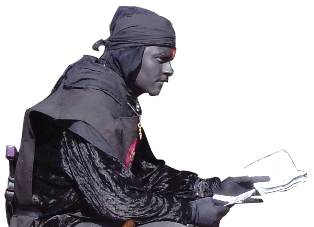Quick Links
- Login (existing users)
- Jeremiahs Journal
- Latest Battle Board
- What is Live Roleplaying?
- Larp Links
Search
Future Events
| The Quest for Knowledge Thu 2 Apr - Mon 6 Apr |
| Torii Gates Thu 2 Jul - Sat 4 Jul |
| Unshed Tears Tue 13 Oct - Sat 17 Oct |
| Nation Life |
 |
 |
 |
Life as an AdventurerAll the people of the Valley must earn their keep. Each must take a trade or a craft and work for the general good of the Valley. In return their basic needs are met: they are fed, clothed and sheltered. This is the 'feudal' deal. Becoming a Guildsman is just like choosing any other trade. You are obliged to work for most of the time for the Guild and in return you receive food, clothing and shelter, are equipped for your trade and even have some time to spend at leisure. Everything you own is effectively paid for by the Guilds and in return you work for the Guild, spending the vast majority of your time training and doing guild duties. The Valley is a meritocracy and, although family may give you an edge, position is not hereditary (perhaps because the Valley itself owns nearly everything). You must work your way up from Apprentice (e.g. warrior or acolyte), finally being accepted into the Guild proper (e.g. veteran or priest) and then, perhaps, if you are talented enough, one day you will be made a Master of the Guild (e.g. Champion or High priest). Law and OrderYour adventuring life depends on you continuing to serve the Valley. In return the Sector Lord is at least partially responsible for the actions of all its members, even down to the lowest apprentice. Valley Law
The feudal society places great store on rank and people of a lower rank are expected to pay respect to those above them (whilst the reverse does not always apply). In general a grievance against someone must be brought to the person above them by someone of equal rank. Only the most serious issues are dealt with (formally) outside a Sector's own hierarchy. All agree that rank attracts extra rights (with commensurate responsibilities), and masters are less likely to be punished than apprentices. It is rarely advisable, and often dangerous, to antagonise people above your rank in the feudal structure. In-Game MoneyThe currency that is used to pay for things in character is called Gests; on Orin Rakatha all goods and services are priced in Gests. Gests are note-based currency and are most commonly found in half, 1, 5, 20, 50 and 100 Gest denominations. A character may earn Gests as a result of adventuring and can use the Gests to buy or upgrade their existing equipment or purchase new items or equipment from the Marketplace. All training is paid for by the Guilds. As well as adventuring, you can add to your wealth by writing mission reports. Each one you write (per event) will earn you 20 Gests.
|
||
| Last Updated on Saturday, 20 March 2021 22:14 |

 Feudal Society
Feudal Society